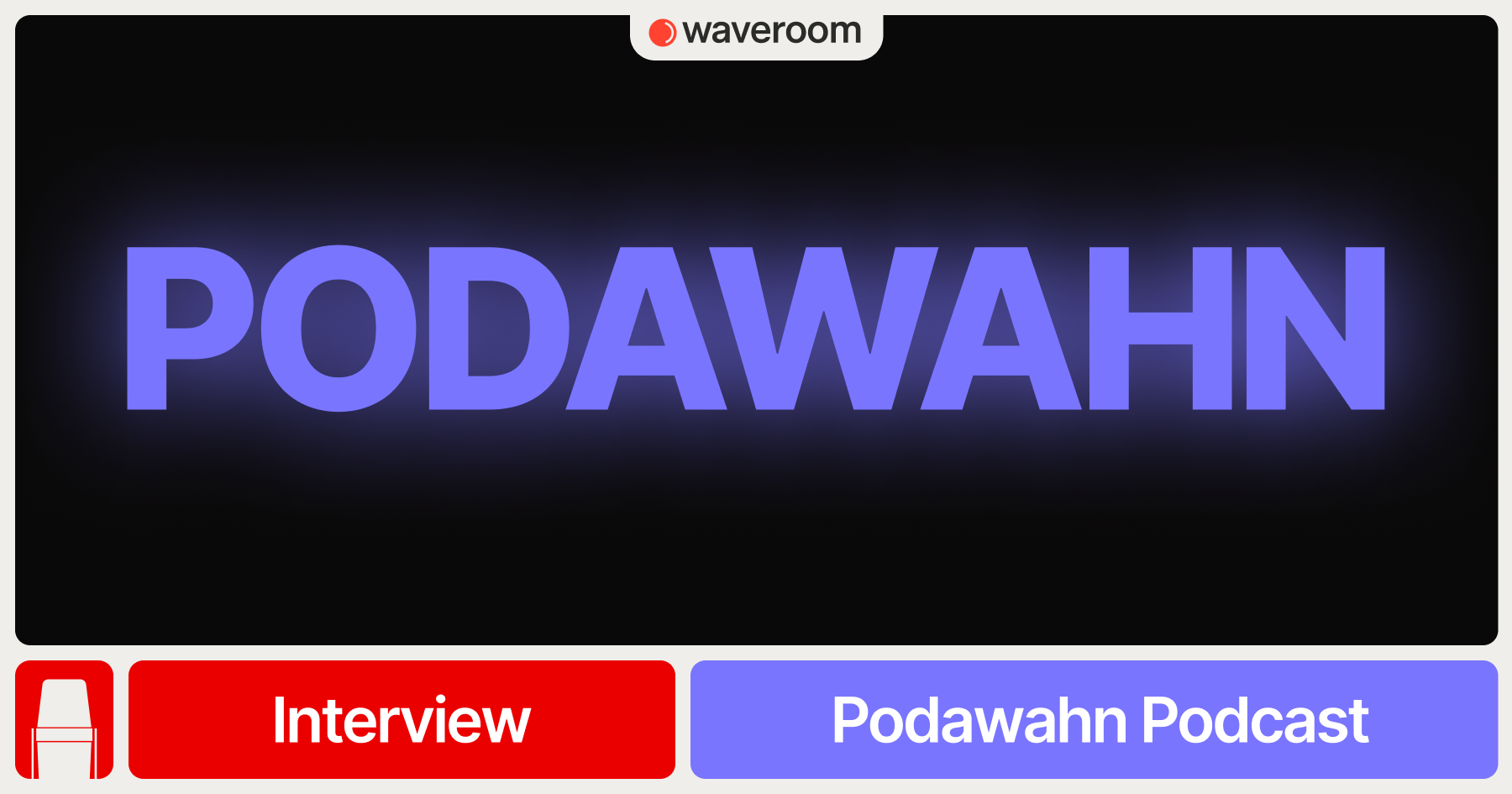Remote Podcast with Co-Hosts from Different Locations? Easy with Waveroom
"We wanted to record a podcast in such a good quality, so that our listeners wouldn't guess we're in different locations."

We keep sharing with you Our Creators' Stories and this time, we sat down with Julian Müller, a full-time IT administrator at a German tech company based in Fulda and one of the co-hosts of Podawahn podcast.
Julian and his colleagues started their show as a hobby when they thought their workplace chats might be a good fit to be told in front of a mic. Julian was happy to share his ideas with us, the reasons why they launched the show, and how Waveroom helped them turn these ideas into reality. If you can speak German, follow the link we added to this story and support guys by streaming their show ❤️
Between reality, pop culture & nonsense
Together with two colleagues, we founded the German podcast PODAWAHN: Zwischen Realität, Popkultur und Nonsens (Between reality, pop culture, and nonsense) to talk about topics that interest and inspire us. We often discussed various things at work or in our free time, and we thought we could do that in front of a microphone so that others could also take part in our entertaining conversations.
It's a podcast with me as the host and two co-hosts, who are also the co-founders. But we're now considering finding guests for interviews and have already included voice messages from listeners in our Christmas episode.
So far, we've talked about our dating experiences, our childhood, and a trip to Norway, to name just a few. Sometimes, we touch on more serious topics, but what sets us apart is our sense of humour, which we hope is very entertaining for the listener.
We all live in different places, so we were looking for a way to record our podcast remotely in good quality
First off, we had to learn how to structure a podcast episode and which technologies we should use, but the latter was no problem due to our existing technical experience. We were looking for a way to record our podcast remotely in good quality, as we all live in different places.
At first, we used to plan what we were going to talk about in each episode, but now we simply touch on topics that are vital for us at the moment or simply let our thoughts run free.
Most of our listeners are from Germany and some are friends, relatives, or work colleagues. But we're happy when new listeners join us, even those who don't know us. So far, we have ~1,000 listeners for all of our episodes.
We host our show through Spotify for Podcasters, which allows us to publish it across all well-known streaming platforms. Nonetheless, we're currently still reliant on recommendations and word of mouth.
We'd like to continue the project for as long as possible since we enjoy doing it. If we could gain more listeners, that would be wonderful and would increase our motivation to continue with a non-profit podcast even further.
We've chosen Waveroom because other free tools had too many limitations
As we've already mentioned, we were looking for a way to record a remote podcast without having to meet each other offline since we live in different places. All other solutions were too expensive for our small project and other free tools had too many limitations, such as quality or recording time.
I first found Waveroom through Google, and then I came across a mention of it in a thread on Reddit.
When we use Waveroom, our goal is to be able to record an audio-only podcast episode in such a way that the quality is right and the listeners cannot guess that we are in different locations.
We should be able to see each other, and the host should have the ability to control the main recording functions for all participants. Waveroom is completely free and it's not overloaded with features, so that's what attracted us to the product.
It looked easy to use and was free, so we gave it a try.
With Waveroom, we don't always have to meet in one of the hosts' places and can leave our equipment at home, so it doesn't have to be unplugged and taken with us every time.
It also simplifies the scheduling of recordings since we don't always have to meet in person. Especially through the recording of separate tracks, it's easier to produce the audio track in the best possible quality in the end.
Speaking of other podcasting gear, I use a MacBook Air M1 and Audacity for editing and publishing the podcast. As a microphone, we all use the Maono PM421.
I'd definitely recommend Waveroom to others in podcasting, even though it can still be improved. For free use, however, it's a great tool!